MEMS & Piezoelectric Devices Blog Posts
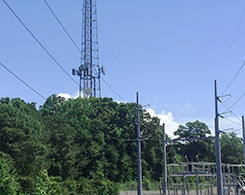
10 Real Uses of COMSOL Multiphysics® in the Power Industry
Minimizing transformer noise, planning underground cable networks, and managing a power grid. Keep reading for more real-world examples in which simulation is used in the power industry.
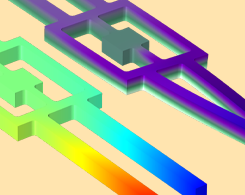
Modeling a Double-Tuning-Fork MEMS Gyroscope
Piezoelectric rate gyroscopes and similar MEMS devices offer an affordable way to measure angular velocity in applications such as skid control and rollover detection in automobile systems.
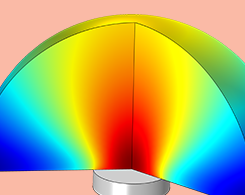
Fine-Tuning the Design of Piezoelectric Transducers with Simulation
A variety of use cases and a variety of physics: Piezoelectric transducer designs need to account for electric currents, pressure acoustics, stress-strain, and acoustic-structure interaction.
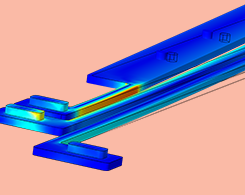
Performing a Multiphysics Analysis of a Thermal Microactuator
To design an optimized thermal microactuator for use in a specific device, you need to account for tightly coupled electrical, thermal, and structural phenomena in your analysis.
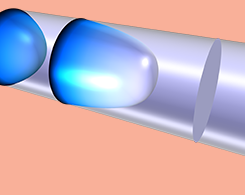
Hydrodynamic Thermal Transport in the Kinetic-Collective Model
F. Xavier Alvarez from the Universitat Autònoma de Barcelona (UAB) discusses using COMSOL Multiphysics® to model heat transfer at the nanoscale and better understand transport processes.
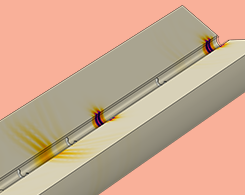
How to Model Piezoelectric Devices as Both Transmitters and Receivers
Certain types of transducers can act as both transmitters and receivers. We demonstrate how to use 2 features for modeling this type of piezoelectric device.
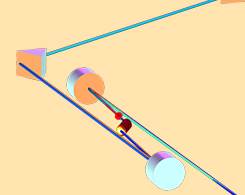
Ray Optics Simulation of Sagnac Interferometers and Ring Laser Gyros
Have you ever been in a revolving restaurant that slowly spins as you dine? This same concept can be used to understand the operating principles of Sagnac interferometers and ring laser gyros.
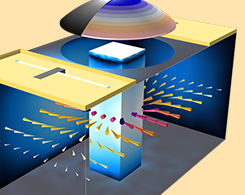
High-Fidelity Modeling of a Tunable Filter via Multiphysics Simulation
Tunable cavity filters can enhance the development of high-speed, wireless communication networks. To optimize these devices for such a purpose, we can turn to high-fidelity modeling.
